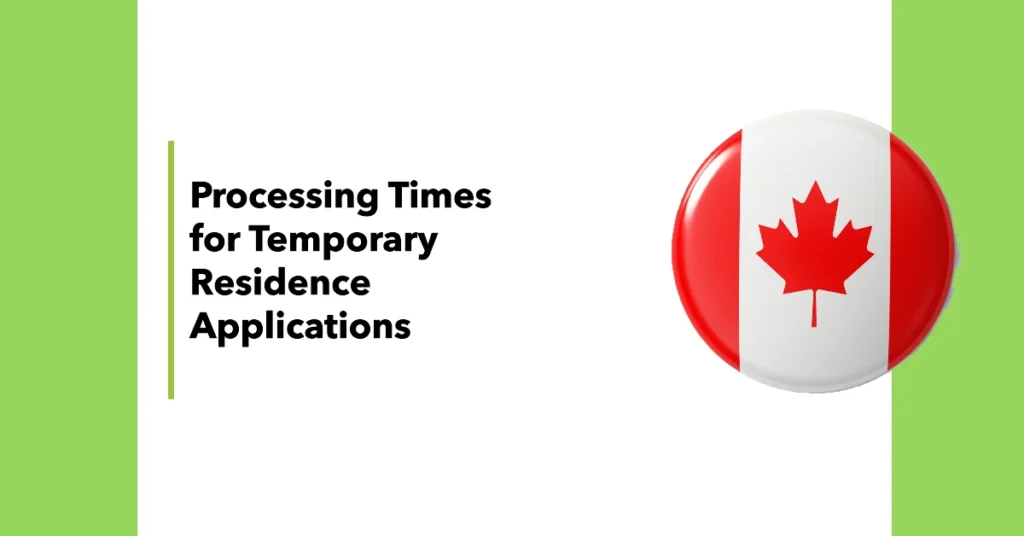Indian nationals applying for temporary residence visas to Canada are currently experiencing significant delays in processing times. Recent data indicates a notable increase across various visa categories, including visitor visas, super visas, study permits, and work permits. This surge in processing times is causing frustration and uncertainty for thousands of applicants from India.
Table of Contents
How to Interpret IRCC Processing Times?
Immigration, Refugees, and Citizenship Canada (IRCC) provide average processing times for about 80% of applications completed on a specific date. However, it’s essential to understand that these times do not include:
- The duration between an application being sent from the Visa Facilitation Services (VFS) to the visa processing center.
- The time taken to provide biometric information.
IRCC updates these processing times weekly, and while they offer a general idea, individual applications may take longer or shorter than specified.
Current Visa Processing Times for Indian Nationals
As of October 9, 2024, the latest visa processing times for Indian nationals are as follows, reflecting a steep increase compared to previous months:
- Canada Visitor Visa Processing Time: 112 Days
- Increased by 10 days since September 24, 2024
- Increased by 15 days since September 17, 2024
- Increased by 48 days since August 20, 2024
- Canada Super Visa Processing Time: 99 Days
- Increased by 12 days since September 24, 2024
- Increased by 9 days since September 17, 2024
- Increased by 31 days since August 20, 2024
- Canada Study Permit Processing Time: 6 Weeks
- Increased by 1 week since September 11, 2024
- Increased by 2 weeks since July 24, 2024
- Canada Work Permit Processing Time: 28 Weeks
- Increased by 1 week since September 24, 2024
- Increased by 1 week since September 4, 2024
- Increased by 8 weeks since August 20, 2024
Overview of Processing Time Increases
| Visa Type | Processing Time (July 2024) | Processing Time (August 2024) | Processing Time (October 2024) | Overall Increase Since July 2024 |
|---|---|---|---|---|
| Visitor Visa | 51 days | 64 days | 112 days | +61 days |
| Super Visa | 59 days | 68 days | 99 days | +40 days |
| Study Permit | 4 weeks | 5 weeks | 6 weeks | +2 weeks |
| Work Permit | 19 weeks | 20 weeks | 28 weeks | +9 weeks |
| Seasonal Agricultural Workers Program (SAWP) | 84 days | 122 days | 288 days | +204 days |

Other Temporary Residence Visas Processing Times Facing Delays
Other categories of temporary residence visas are also experiencing significant processing delays, regardless of nationality. Notable increases include:
- Study Permit Extensions: 126 Days (Increased by 19 days since September 24, 2024, and by 56 days since August 20, 2024)
- SAWP Processing Time: 288 Days (Increased by 158 days since August 20, 2024)
Canada Implement New Rules for Post-Graduation Work Permits Eligibility Criteria
Top LMIA-Approved Jobs in Canada October 2024: Leading Companies & Application Process
IRCC Caregiver Pilot Programs 2024: Eligibility & Application Process
Express Entry Draws October 2024: IRCC Issues 2,113 PR Invitations in Latest Draws
IRCC Extends Public Policy for Immigration Medical Examination Exemptions until 2029
Why Are Canada Visa Processing Times Increasing?
Several factors contribute to the rising visa processing times for Indian nationals in 2024:
1. High Volume of Applications
Canada has become an increasingly popular destination for Indian nationals, especially after COVID-19 restrictions were eased. The surge in applications for study, work, and tourism has strained IRCC’s processing capacity.
2. Increased Scrutiny of Applications
Concerns about visa fraud and misrepresentation have led IRCC to increase the scrutiny of applications from Indian nationals. This added scrutiny results in longer processing times as applications undergo more thorough checks.
3. Changes in Immigration Policies
New immigration policies aimed at attracting skilled workers, international students, and entrepreneurs have increased the complexity of the visa system, leading to longer evaluation periods.
4. Complications with Biometrics and Additional Security Checks
The biometric requirements for Indian nationals—fingerprints and photos—have caused delays in some cases. Additionally, extra security checks and interviews for certain visa categories can further extend processing times.
Impact on Indian Nationals: What These Delays Mean
The increasing processing times pose significant challenges for Indian nationals:
- Students may miss their academic terms due to delays in study permit processing.
- Workers may lose job opportunities or face disruptions in work schedules.
- Tourists need to plan their trips months in advance, potentially discouraging travel to Canada.
What Can Applicants Do?
Although applicants cannot control IRCC processing times, they can take proactive steps to mitigate delays:
- Apply Early: Submit visa applications as early as possible to avoid last-minute complications.
- Ensure Complete Documentation: Double-check application materials and follow IRCC guidelines to prevent delays caused by incomplete applications.
- Track Application Status: Regularly check the status of applications through the IRCC portal for updates and necessary actions.
- Consider Alternative Pathways: Explore faster options like the Student Direct Stream (SDS) program for study permits.
Visa processing times for Indian nationals seeking temporary residence in Canada have risen dramatically in 2024. The increased demand, limited resources, and stricter scrutiny significantly contribute to these delays. Staying informed and acting early will be crucial for applicants navigating these extended wait times. As Canada remains a sought-after destination for many Indians, proper planning and timely submissions are vital for successful visa applications.
